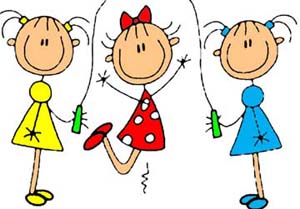 |
|
| Appunti superiori |
|
 |
|
| Appunti superiori |
|
| Visite: 2098 | Gradito: |
Leggi anche appunti:The Romanticism in English literatureThe Romanticism in English literature In English literature, 'Romanticism' was Arte grecaARTE GRECA CONCETTI PRINCIPALI: bellezza, proporzioni, regole (canoni), DegasL'Uomo I contemporanei di Degas non sono stati certamente molto indulgenti |
 |
 |
![]()
1 Edgar Allan Poe: L' esplorazione dell'abisso
![]()
Tutta la letteratura, senza eccezione, deve diventare una discesa agli inferi, e quella discesa deve essere insieme lucida e angosciosa, nitida come una mappa lungamente studiata e popolata di luci e ombre che il linguaggio deve osare toccare. In Edgar Allan Poe la comprensione degli inferi, di quest'abisso, è dovuta alla sua predisposizione alla dissociazione mentale sicuramente alterata dall'uso di sostanze stupefacenti, tipo il laudano. Nella esplorazione di quest'abisso, che coincide con la comprensione della dimensione labirintica della realtà, Poe non crolla in una totale alienazione. Egli è quindi un caso anomalo di "genio folle": seppur il suo inconscio usurpi le funzioni del reale e vi sostituisca una propria realtà egli non perde completamente il controllo ma accoglie queste invasioni dell'inconscio e le controlla. Poe soffre, comunque, di uno stato di alterazione psichica dovuto ad un trauma psicologico infantile, molto probabilmente alla morte della madre. Maria Bonaparte sostiene, nella sua lettura psicanalitica di Poe, che egli abbia tentato invano di fuggire al ricordo della madre morente e morta ma "per quanto tirasse la catena non riusciva a spezzarla". Virginia, sua moglie, divenne il grande amore della sua vita solo perché, anch'essa malata di tisi, "tossiva e sputava sangue come un tempo Elizabeth". Ma quando cominciò ad assomigliare troppo all'estinta, Poe, fu afferrato dal terrore e trovò come rimedio la scrittura. Egli creò, infatti, un proprio mondo, caratteristica tipica delle personalità geniali. Il mondo di Poe è dominato dal vaneggiamento, dalla calcolata imprecisione, dal "cattivo gusto". Il "cattivo gusto" di Poe, la sua insistenza catastrofica è, infatti, essenziale alla sua eversiva invenzione del mondo. Chi ha mai detto che il delirio, per di più deliberato, sia espressione di "buon gusto"? Avere visioni e allucinazioni è compatibile con un' idea ordinata e pacata di se stessi? In conclusione, la morte è un atto compatibile con la buona educazione?
Tema principale della letteratura di Poe è appunto la morte, la morte come "eccesso" sperimentabile, come iperbole che distrugge la frode del reale. Possiamo assistere e percorrere l'evento della morte attraverso il lessico che egli utilizza. Lo stile di Poe si rivela infatti come una tecnica destinata a provocare una visione. Poe è dunque essenzialmente un incantatore che sa quali suoni e quali strutture di proposizione possono svelare la dolcezza lancinante della visione, della morte come esperienza. A questo punto si può affermare che la grandezza di Poe consiste nell'aver creato un mondo linguisticamente coerente, incompatibile con la "realtà". Poe non ha detto nulla, ha parlato una lingua che nessuno prima di lui aveva mai parlato.
2 Tales and obsessions
![]()
Berenice
![]()
Plot
The narrator, Egaeus, is a studious young man who grows up in a large gloomy mansion with his cousin Berenice. He suffers from a type of obsessive disorder, a monomania that makes him fixate on objects. She, originally beautiful, suffers from some unspecified degenerative illness, with periods of catalepsy a particular symptom, which he refers to as a trance. Nevertheless, they are due to be married.
One afternoon, Egaeus sees Berenice as he sits in the library. When she smiles, he focuses on her teeth. His obsession grips him, and for days he drifts in and out of awareness, constantly thinking about the teeth. He imagines himself holding the teeth and turning them over to examine them from all angles. At one point a servant tells him that Berenice has died and been buried. When he next becomes aware, with an inexplicable terror, he finds a lamp and a small box in front of him. Another servant enters, reporting that a grave has been violated, and a shrouded disfigured body found, still alive. Egaeus finds his clothes are covered in mud and blood, and opens the box to find it contains dental instruments and 'thirty-two small, white and ivory-looking substances' - Berenice's teeth.
Analysis
This story is one of Poe's most violent. As the narrator looks at the box which he may subconsciously know contains his wife's teeth, he asks himself, 'Why did the hairs of my head erect themselves on end, and the blood of my body become congealed within my veins?' Poe does not actually include the scene where the teeth are pulled out. The reader also knows that Egaeus was in a trance-like state at the time, incapable of responding to evidence that his wife was still alive as he committed the gruesome act. Additionally, the story emphasizes that all 32 of her teeth were removed. Teeth are used symbolically in many of Poe's stories to symbolize mortality. Sigmund Freud might point out the importance of teeth in 'Berenice'. In Freudian terms, the removal of teeth can be a symbol of castration, possibly as punishment for masturbation. Another interpretation is thinking of the teeth as protection for an entrance to the wife's body, another sexual connotation. Egaeus and Berenice are both representative characters. Egaeus, literally born in the library, represents intellectualism. He is a quiet, lonely man whose obsession only emphasizes his interest on thought and study. Berenice is a more physical character, described as 'roaming carelessly through life' and 'agile, graceful, and overflowing with energy.' She is, however, an oppressed woman, having 'spoke no word' throughout the story. Her only purpose, as with many of Poe's female characters, is to be beautiful and to die. Egaeus loses his interest in the full person of Berenice as she gets sick; she becomes an object to analyze, not to admire. He dehumanizes her by describing 'the' forehead of Berenice, rather than 'her' forehead.
The final lines of the story are purposely protracted using a series of conjunctions connecting multiple clauses. The rhythm as well as the heavy accented consonant and long vowels sounds help unify the effect. This is one of the few Poe stories whose narrator is named.
Themes
Eleonora
![]()
Plot
The story follows an unnamed narrator who lives with his cousin and aunt in 'The Valley of the Many-Colored Grass,' an idyllic paradise full of fragrant flowers, fantastic trees, and a 'River of Silence.' It remains untrodden by the footsteps of strangers and so they live isolated but happy. After living like this for fifteen years 'before Love entered' the hearts of the narrator and his cousin Eleonora. The valley reflected the beauty of their young love. Eleonora, however, was sick - 'made perfect in loveliness only to die.' She does not fear death, but fears that the narrator will leave the valley after her death and transfer his love to someone else. The narrator emotionally vows to her, with 'the Mighty Ruler of the Universe' as his witness, to never bind himself in marriage 'to any daughter on Earth.'After Eleonora's death, however, the Valley of the Many-Colored Grass begins to lose its lustre and warmth. The narrator chooses to leave to an unnamed 'strange city.' There, he meets a woman named Ermengarde and, without guilt, marries her. Eleonora soon visits the narrator from beyond the grave and grants her blessings to the couple. 'Thou art absolved,' she says, 'for reasons which shall be made known to thee in Heaven.'
Analysis
Many biographers consider 'Eleonora' an autobiographical story written for Poe to alleviate his own feelings of guilt for considering other women for love. At the time of the publication of this very short tale, his wife Virginia had just begun to show signs of illness, though she would not die for another five years. The narrator, then, is Poe himself, living with his young cousin (soon-to-be wife) and his aunt. The abrupt ending, with the narrator's new love only named in the third to last paragraph, is somewhat unconvincing if this is Poe's attempt at justifying his own feelings. Poe considered the tale 'not ended so well as it might be.' Perhaps, it is in the vagueness of the reason which will only be revealed in Heaven for permission to break his vow. Even so, compared to the endings of other Poe tales where the dead lover returns from beyond the grave, this is a 'happy' ending, free of antagonism, guilt, or resentment (In 'Ligeia' the first wife returns from the dead and destroys the narrator's new love). Ultimately, the message in 'Eleonora' is that a man is allowed to wed without guilt after the death of his first love. The narrator readily admits madness in the beginning of the story, though he believes it has not been determined if madness is actually the loftiest form of intelligence. This may be meant facetiously, but it also may explain the excessively paradise-like description of the valley and how it changes with their love and, later, with Eleonora's death. Eleonora's death serves as a symbolic end to ideal romantic love which is soon replaced with the less passionate married love for Ermengarde. Eleonora embodies many typical traits in Poe's female character: she is young, passive, and completely devoted to her love
Themes
Ligeia
![]()
Plot
The unnamed narrator describes the qualities of Ligeia, a beautiful, passionate and intellectual woman, raven-haired and dark-eyed, that he thinks he remembers meeting 'in some large, old decaying city near the Rhine.' He is unable to recall anything about the history of Ligeia, including her family's name, but remembers her beautiful appearance. Her beauty, however, is not conventional. He describes her as emaciated, with some 'strangeness.' He describes her face in detail, from her 'faultless' forehead to the 'divine orbs' of her eyes. They marry, and Ligeia impresses her husband with her immense knowledge of physical and mathematical science, and her proficiency in classical languages. She begins to show her husband her knowledge of the metaphysical and 'forbidden' wisdom. After a few years Ligeia dies after reciting a poem and suggesting that death only comes as a result of a 'feeble will.' The narrator, grief-stricken, moves to England where he buys and refurbishes an abbey. He soon enters into a loveless marriage with 'the fair-haired and blue-eyed Lady Rowena Trevanion, of Tremaine.' In the second month of the marriage, Rowena begins to suffer from worsening fever and anxiety. One night, when she is about to faint, the narrator pours her a goblet of wine. Drugged with opium, he sees (or thinks he sees) drops of 'a brilliant and ruby colored fluid' fall into the goblet. Her condition rapidly worsens, and a few days later she dies and her body is wrapped for burial. As the narrator keeps vigil overnight, he notices a brief return of color to Rowena's cheeks. She repeatedly shows signs of reviving, before relapsing into apparent death. As he attempts resuscitation, the revivals become progressively stronger, but the relapses more final. As dawn breaks, and the narrator is sitting emotionally exhausted from the night's struggle, the shrouded body stands and walks into the middle of the room. When he touches the figure, its head bandages fall away to reveal masses of raven hair and dark eyes: Rowena has transformed into Ligeia.
Analysis
The story is psychologically deep because, despite this dependency on Ligeia, the narrator has a simultaneous desire to forget her (perhaps causing him to be unable to love Rowena). This desire to forget is exemplified in his inability to recall Ligeia's last name or, more importantly, if he ever knew it. Ligeia, the narrator tells us, is extremely intelligent, 'such as I have never known in a woman.' So, her knowledge in mysticism, combined with an intense desire for life may have led to her revival.
Ligeia and Rowena serve as aesthetic opposites: Ligeia is raven-haired from a city by the Rhine while Rowena is a blonde Anglo-Saxon. This symbolic opposition implies the contrast between German and English romanticism. Exactly what Poe was trying to say in the metamorphosis scene has been debated, fueled in part by Poe's own denial that Ligeia was reborn in Rowena's body. If Rowena had actually transformed into the dead Ligeia, it is only evidenced in the words of the narrator, leaving room to question its validity. The narrator has already been established as an opium addict, making him an unreliable narrator. In fact, perhaps tellingly, the narrator early in the story describes Ligeia's beauty as 'the radiance of an opium-dream.' So Ligeia's return was nothing more than a drug-induced hallucination. If Ligeia's return from death is literal, however, it seems to stem from her assertion that a person dies only by a weak will. This implies, then, that a strong will can keep someone alive. It is unclear, however, if it is Ligeia's will or her husband's will that brings Ligeia back from the dead. Poe also wrote that he should have had the Ligeia-possessed Rowena relapse back to her true self so that she could be entombed as Rowena, 'the bodily alterations having gradually faded away.'
Themes
The fall of the house of Usher
![]()
Plot
The tale opens with the unnamed narrator arriving at the house of his friend, Roderick Usher, having received a letter from him in a distant part of the country complaining of an illness and asking for his comfort. Although Poe wrote this short story before the invention of modern psychological science, Usher's symptoms can be described according to its terminology. They include hyperesthesia (extreme hypersensitivity to light, sounds, smells, and tastes), hypochondria, and acute anxiety. It is revealed that Usher's twin sister, Madeline, is also ill, suffering from catalepsy. The narrator is impressed with Usher's paintings, and attempts to cheer him by reading with him and listening to his improvised musical compositions on the guitar. Usher sings 'The Haunted Palace', then tells the narrator that he believes the house he lives in to be sentient, and that this sentience arises from the arrangement of the masonry and vegetation surrounding it. Usher later informs the narrator that his sister has died and insists that she be entombed for two weeks in a vault in the house before being permanently buried. They inter her, but over the next week both Usher and the narrator find themselves becoming increasingly agitated for no apparent reason. A storm begins. Usher comes to the narrator's bedroom, which is situated directly above the vault, and throws open his window to the storm. He notices that the bog surrounding the house seems to glow in the dark, as it glowed in Roderick Usher's paintings, although there is no lightning. The narrator attempts to calm Usher by reading aloud The Mad Trist, a novel involving a knight named Ethelred who breaks into a hermit's dwelling in an attempt to escape an approaching storm, only to find a palace of gold guarded by a dragon. He also finds hanging on the wall a shield of shining brass of which is written a legend: that the one who slays the dragon wins the shield. With a stroke of his mace, Ethelred fells the dragon, who dies with a piercing shriek, and proceeds to take the shield, which falls to the floor with an unnerving clatter. As the narrator reads of the knight's forcible entry into the dwelling, cracking and ripping sounds are heard somewhere in the house. When the dragon is described as shrieking as it dies, a shriek is heard, again within the house. As he relates the shield falling from off the wall, a reverberation, metallic and hollow, can be heard. Usher becomes increasingly hysterical, and eventually exclaims that these sounds are being made by his sister, who was in fact alive when she was entombed and that Usher knew that she was alive. The bedroom door is then blown open to reveal Madeline standing there. She falls violently in death upon her brother, who dies of his own terror. The narrator then flees the house, and, as he does so, notices a flash of light causing him to look back upon the House of Usher, in time to watch it break in two, the fragments sinking into the tarn.
Analysis
'The Fall of the House of Usher' shows Poe's ability to create an emotional tone in his work, specifically feelings of fear, doom, and guilt. These emotions center on Roderick Usher who, like many Poe characters, suffers from an unnamed disease. The illness manifests physically but is based in Roderick's mental or even moral state. He is sick, it is suggested, because he expects to be sick based on his family's history of illness and is, therefore, essentially a hypochondriac. Similarly, he buries his sister alive because he expects to bury her alive, creating his own self-fulfilling prophecy. The House of Usher, itself doubly referring both to the actual structure and the family, plays a significant role in the story. It is the first 'character' that the narrator introduces to the reader, presented with a humanized description: its windows are described as 'eye-like' twice in the first paragraph. The fissure that develops in its side is symbolic of the decay of the Usher family and the house 'dies' along with the two Usher siblings. This connection was emphasized in Roderick's poem 'The Haunted Palace' which seems to be a direct reference to the house that foreshadows doom. The explicit psychological dimension of this tale has prompted many critics to analyze it as a description of the human psyche, comparing, for instance, the House to the unconscious, and its central crack to the personality split which is called Dissociative identity disorder. Mental disorder is also evoked through the themes of melancholy, possible incest and vampirism. An incestuous relationship between Roderick and Madeline is not explicitly stated, but seems implied by the strange attachment between the two.
Themes
![]() BIBLIOGRAFIA
BIBLIOGRAFIA
2001, Cortina Raffaello Editore
1988, Edizioni Adelphi
2007, Edizione radiciBUR
 |
| Appunti su: Edgar Allan Poe genio folle, |
|
| Appunti Film foto |  |
| Tesine Gioco |  |
| Lezioni Poesia |  |